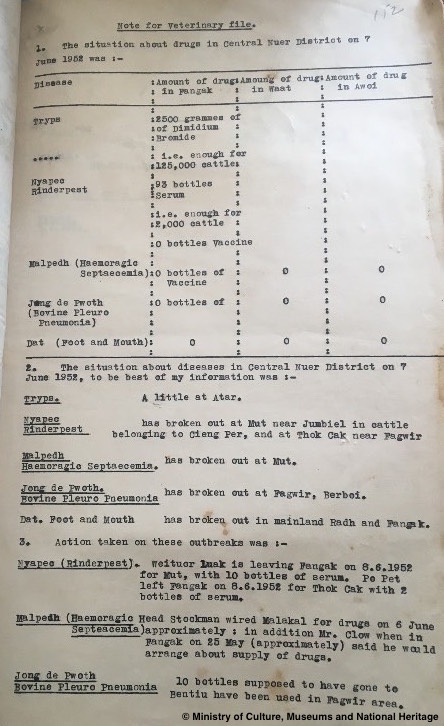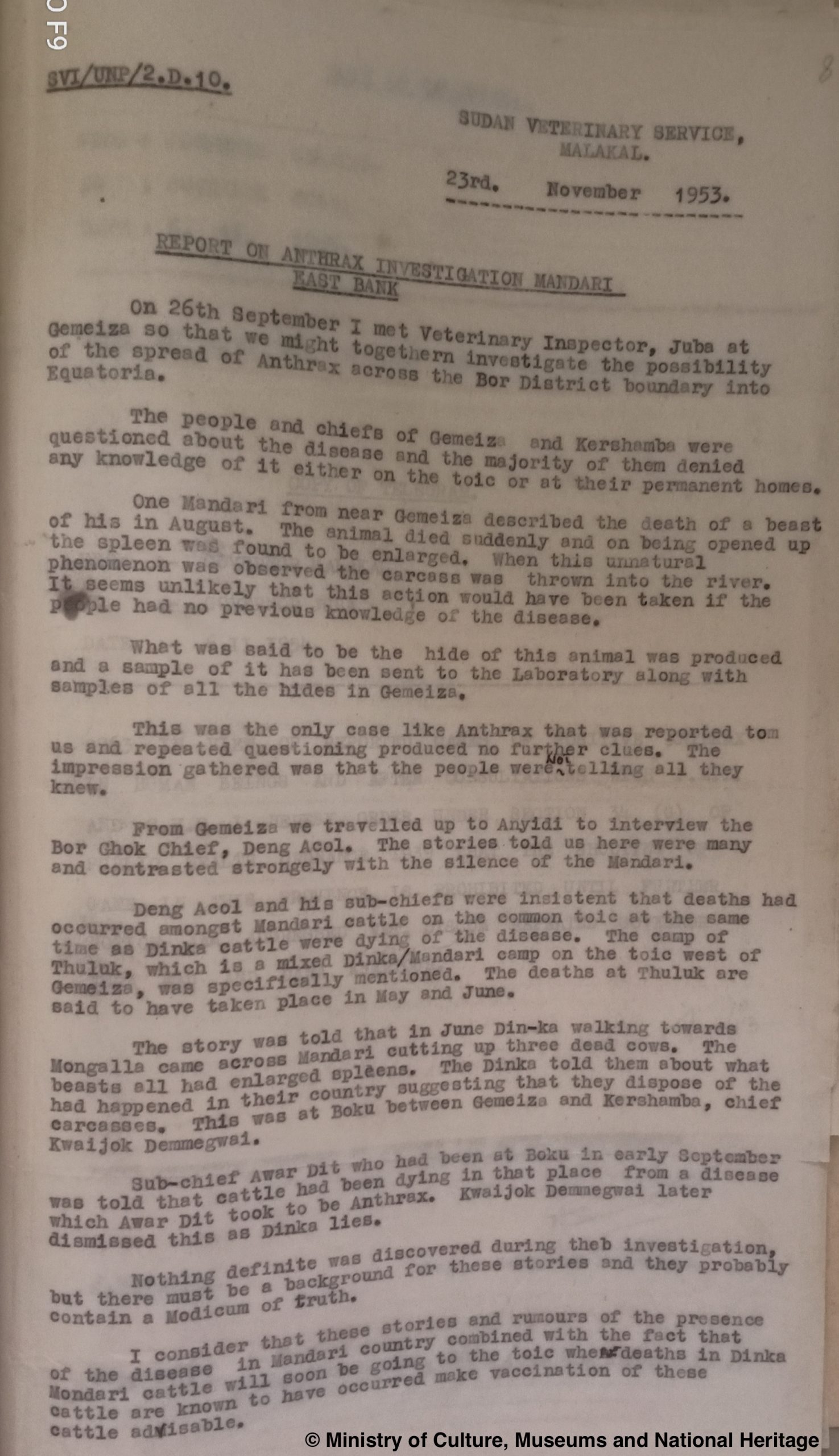 In collaboration with the Ministry of Culture, Museums and National Heritage, is sharing selected, approved documents from the South Sudan National Archives through social media channels to showcase the range of information available in the collection. This project is implemented in partnership with UNESCO with funding from the Norwegian Government.
In collaboration with the Ministry of Culture, Museums and National Heritage, is sharing selected, approved documents from the South Sudan National Archives through social media channels to showcase the range of information available in the collection. This project is implemented in partnership with UNESCO with funding from the Norwegian Government.
When the context allows, these documents will be published in a full public exhibition to be displayed in different locations across the country.
Make sure to listen in to Eye Radio every Wednesday at 4pm to hear more about these different topics on the Tarikh Ta’na show.
Veterinary services: animal health and well-being
The health and wealth of people in South Sudan has always been tied to the health and well-being of animals across the country. People across the nation have close relationships with livestock of all kinds, particularly cattle, goats, sheep and chicken. Caring for livestock has been a longstanding way of caring for family wealth and health, because livestock provide both financial security and nutritional milk and meat.
 Caring for animal health and well-being in South Sudan is also complicated. This is due to significant disease risks—including tsetse fly, rinderpest and other sicknesses—and the challenges of drought and pasture. Cattle in particular are exposed to health and well-being risks through seasonal migrations for water and grazing. Across South Sudan, animals have always relied on human skills and experience for treatment and disease avoidance, using local knowledge developed over generations.
Caring for animal health and well-being in South Sudan is also complicated. This is due to significant disease risks—including tsetse fly, rinderpest and other sicknesses—and the challenges of drought and pasture. Cattle in particular are exposed to health and well-being risks through seasonal migrations for water and grazing. Across South Sudan, animals have always relied on human skills and experience for treatment and disease avoidance, using local knowledge developed over generations.
Veterinary medicine is, however, not a new field of medicine in South Sudan. Some of South Sudan’s first university graduates were veterinary studies experts, alongside the first doctors, reflecting the close relationship between human and animal health in the south. Some of the first laboratories in the South were focused on veterinary research. Since the 1950s, veterinary medics have had to navigate the difficult terrain of South Sudan to access and build trust with pastoralists and local communities who have previously relied on local veterinary knowledge. The National Archives of South Sudan in Juba records these early efforts to build veterinary services across the country, and this work continues today.



